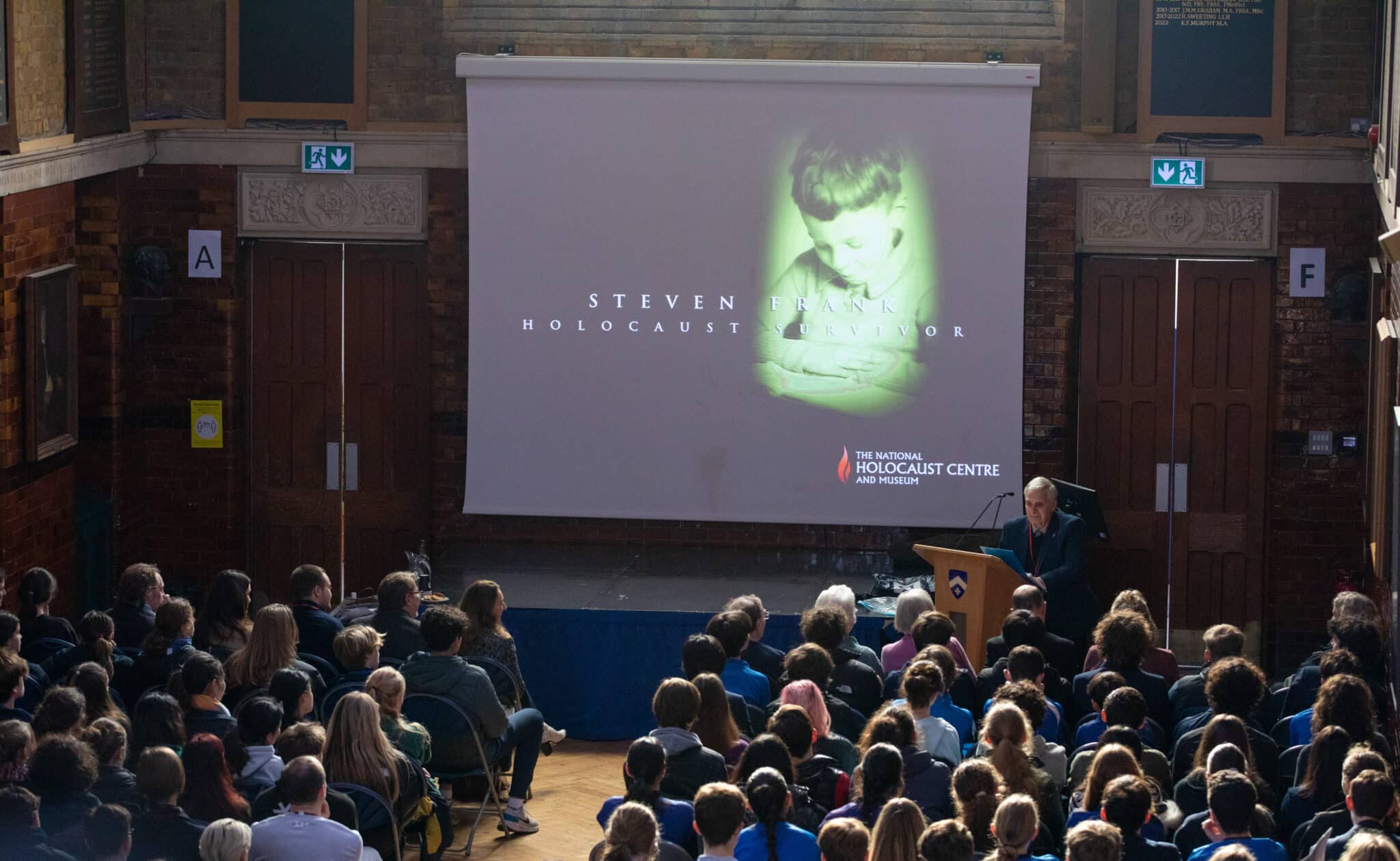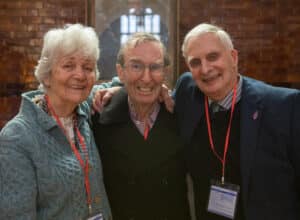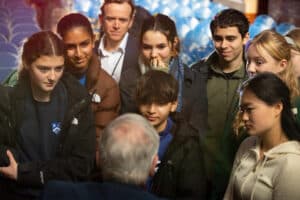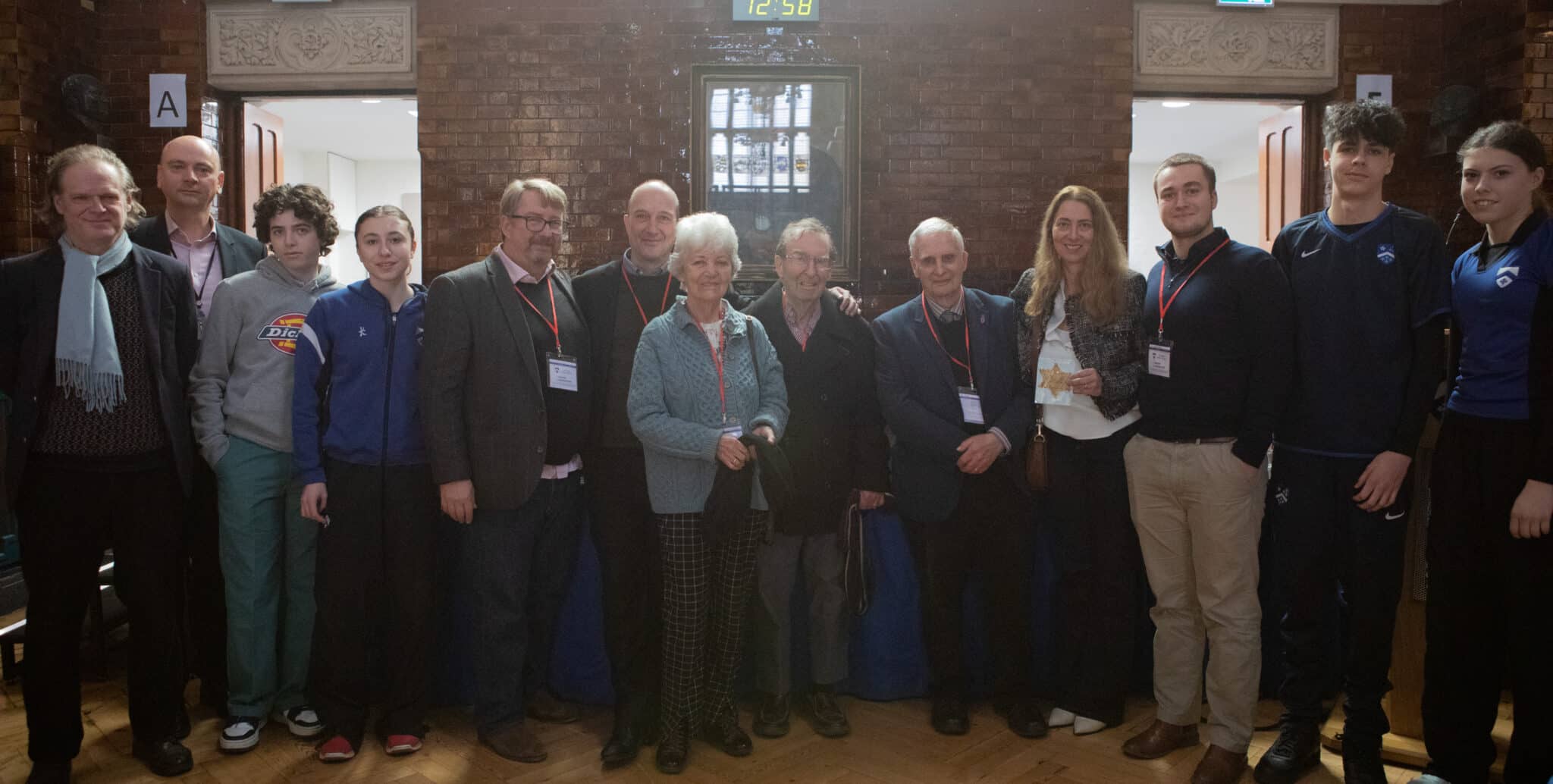Latymer Upper School’s March Musical Concert Series
Over the past few weeks Latymer Upper School’s talented musicians have showcased their incredible skills in a series of...
 We were honoured to welcome Holocaust survivor, Steven Frank to Latymer. Steven spoke to pupils, staff and members of the community who packed into the Main Hall to listen to his unique and personal insight into the Holocaust and the destruction it caused.
We were honoured to welcome Holocaust survivor, Steven Frank to Latymer. Steven spoke to pupils, staff and members of the community who packed into the Main Hall to listen to his unique and personal insight into the Holocaust and the destruction it caused.
 We are very grateful to Steven’s nephew, Nick Frank, an alumnus of Latymer (Class of 1981) for his support with arranging this important talk, as part of events at Latymer to mark Holocaust Memorial Day 2023. It felt very special to have Nick’s father, Carel, Steven’s younger brother, and their family with us for this event.
We are very grateful to Steven’s nephew, Nick Frank, an alumnus of Latymer (Class of 1981) for his support with arranging this important talk, as part of events at Latymer to mark Holocaust Memorial Day 2023. It felt very special to have Nick’s father, Carel, Steven’s younger brother, and their family with us for this event.
Born in Amsterdam in 1935, Steven was just five years old when the Nazis invaded and occupied the Netherlands. He spoke movingly about his family and how the life they had known suddenly changed and he just ‘couldn’t understand what he had done wrong.’ The whole family suffered under the many restrictions the Nazis imposed on the Jewish community, people they knew were arrested and others fled into hiding. At various times people were even hidden at the Frank’s house – a very risky thing for a Jewish family to do. Steven’s father and mother were determined to do something and to provide help for those that needed it.
Steven spoke lovingly about his father, Leonard Frank, a much respected lawyer who worked tirelessly to help the most disadvantaged in their local community. He sat on the board of a large hospital for the mentally ill. When the Nazis invaded, the family had offers to help them escape to Britain, but Leonard Frank was worried about the patients and refused to flee. As a well respected member of the community, Leonard Frank wrote letters on behalf of Jews arrested by the Nazis asking for better treatment and for them not to be deported to the ‘East’. One day in early 1943, his father was taken captive by the Nazi soldiers, never to be seen again.
Just as Leonard Frank had spoken out for others, some brave non-Jewish friends spoke out for him. As a result, shortly after his father’s arrest, when his mother received notice that they were to be sent away, it was firstly to a prison camp for privileged prisoners because of Leonard’s connections but eventually the four of them were sent to Westerbork. Westerbork camp was a transit camp – a holding place from where Dutch Jews were held until they were deported to camps in Eastern Europe, often to Auschwitz-Birkenau, the largest Nazi killing camp.
After a number of months living in Westerbork transit camp watching their friends and loved ones loaded onto trains and sent away, the Frank family were deported to Theresienstadt ghetto camp in occupied Czechoslovakia in September 1944. Theresienstadt was an old disused barracks and despite containing many permanent buildings, people were still forced to live in terrible conditions with little food or access to water.
For many Theresienstadt was just a stopping point – those that did not die from disease were usually transported to other camps to be gassed. The transportations happened regularly and Steven remembers the horrible scenes when the Nazis intentionally split up families so that those who were not taken on the transportation were mentally tortured with the knowledge of what might be happening to their loved ones. Fortunately for Steven, the war ended before they were deported. He and his brothers, the youngest, Carol, joined Steve for the talk at Latymer) are three of only 93 children who survived Theresienstadt out of the 15,000 children who were sent there.
 After the war, Steven, his brothers and mother moved to England to try and rebuild their lives. Steven now speaks to groups and at schools all over the UK, using his voice to speak out for the children that didn’t survive so that they will be remembered, and so that the actions of those who did speak out against the Nazis, like his father, will not be forgotten. Despite witnessing death, brutality and injustice, Steven focuses on the love and friendships that enabled him to survive – the love and ingenuity of his mother and how a love of gardening gave him strength and some relief from the horrors of his reality.
After the war, Steven, his brothers and mother moved to England to try and rebuild their lives. Steven now speaks to groups and at schools all over the UK, using his voice to speak out for the children that didn’t survive so that they will be remembered, and so that the actions of those who did speak out against the Nazis, like his father, will not be forgotten. Despite witnessing death, brutality and injustice, Steven focuses on the love and friendships that enabled him to survive – the love and ingenuity of his mother and how a love of gardening gave him strength and some relief from the horrors of his reality.
You can watch a recording of the talk he gave at Latymer by clicking on this link.

Over the past few weeks Latymer Upper School’s talented musicians have showcased their incredible skills in a series of...
The Public Schools Fencing Championships were held at the Lee Valley Athletics Centre in Edmonton last week from Tuesday...
Over 40 A Level English students had the opportunity to hear from Hugh Epstein, President of the Joseph Conrad...